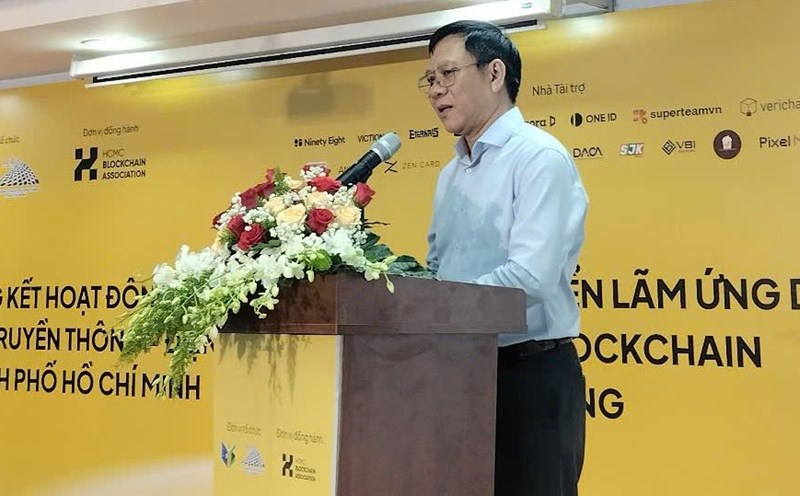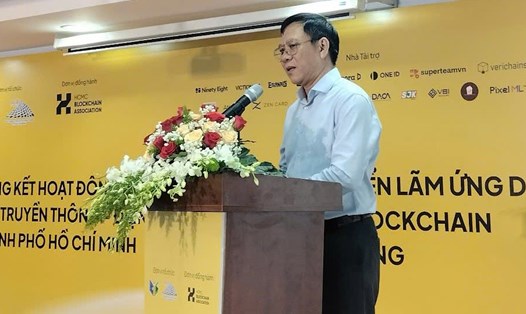Web3 incubation program with an investment of up to 5 million USD
On the evening of May 22, 2025, the BlockStar Meetup Hanoi event: Promoting the future of Web3 of Vietnam took place in Hanoi, gathering more than 150 founders, investors, experts and the web3 community in Vietnam and the Asia region. This is an activity organized by IDGX in collaboration with SSI Digital (SSID).
The event aims to introduce the 10-week BlockStar Incubation incubation program for Web3 startups; at the same time, connecting the Vietnamese startup community with investors, consultants and ecosystem partners. Through this program, startups will be comprehensively supported in product development, market access strategies, token design, capital calling and legality. In particular, participating startups have the opportunity to reach more than 200 partners in the ecosystem and an investment of up to 5 million USD.
Startup Web3 is a startup that usesblockchain technology to build decentralized products and services. This is considered the next generation of the Internet, with the potential to be applied in finance, trade, entertainment and many other industries.
Building a market with a transparent mechanism
At the event, sharing with the press about digital assets and the blockchain ecosystem, Mr. Nguyen Duy Hung - Chairman of the Board of Directors of SSI Securities Joint Stock Company - emphasized that blockchain is not only technology, but a social infrastructure based on collective trust. The Blockchain here is not simply an archival technology, but a mechanism to connect all members in a transparent, fair, and fraudulent direction. If all transactions are recorded and automatically verified, the processing speed will be faster, the data will be clearer, and there will be no intervention.
Comparing blockchain to a transportation system, Mr. Hung said: "If the road is designed to be standard, there will be many types of vehicles circulating on it: food trucks, medicine trucks, passenger trucks... The important thing is to choose the right infrastructure, the right design and the development unit must be reputable enough to ensure the reliability of the entire system."
With a technology platform like blockchain, we can completely build highly customized systems, applied in important areas such as healthcare, education, and public administration. The important thing is to have coordination between management agencies, businesses and the development community to shape common standards. Mr. Hung commented.
Need to solve the problem of human resources and long-term strategies
Speaking about the current difficulties, Mr. Luu Tran - Technology Director of SSI Digital - pointed out that one of the biggest obstacles for Vietnamese startups when entering the international market is the human resource problem. Not only in the Web3 field, but many traditional technology companies are also facing a similar situation. The domestic personnel team still lacks practical experience, making it difficult to adapt quickly to global requirements.
We are trying to improve this by combining personnel from many different platforms and products to form a stable development team, while taking advantage of the strengths of the community and the network of experts. But that is a process that takes time, needs a process. Many units with strong financial potential will choose to spend money to buy users and promote the ecosystem. But that's not the way we choose it.
Regarding the practical application of Web3, Mr. Luu Tran emphasized the three strongest points of this technology. First is open source code anyone can participate in building and contributing. Second is the ability to automate processes through smart contracts. And finally, transparency, which has been mentioned by the community for more than a decade.
He gave an example of an organization like Tether the USDT issuer that currently manages tens of billions of dollars in assets across dozens of different blockchain networks, entirely through smart contracts. If they can do it on a global scale, why dont we apply blockchain to manage and operate stages and stages in public services?
According to him, blockchain has the potential to be applied in many areas of public services such as: licensing, file management, information verification... Especially when combined with identification technology, all resources can be tracked and authenticated in an open, decentralized system.










